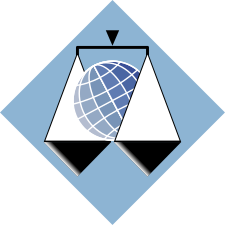ICTY
| International Criminal Tribunal for the former Yugoslavia |
|
|---|---|

Logo of the Tribunal
|
|
| Established | 25 May 1993 |
| Country | United Nations |
| Location | The Hague, Netherlands |
| Coordinates | 52°05′40″N 4°17′03″E / 52.0944°N 4.2843°ECoordinates: 52°05′40″N 4°17′03″E / 52.0944°N 4.2843°E |
| Authorized by | United Nations Security Council Resolution 827 |
| Judge term length | Four years |
| Number of positions | 16 permanent 12 ad litem |
| Website | www |
| President | |
| Currently | Carmel Agius (Malta) |
| Since | 17 November 2015 |
The International Tribunal for the Prosecution of Persons Responsible for Serious Violations of International Humanitarian Law Committed in the Territory of the Former Yugoslavia since 1991, more commonly referred to as the International Criminal Tribunal for the former Yugoslavia or ICTY, is a body of the United Nations established to prosecute serious crimes committed during the Yugoslav Wars, and to try their perpetrators. The tribunal is an ad hoc court which is located in The Hague, Netherlands.
The Court was established by Resolution 827 of the United Nations Security Council, which was passed on 25 May 1993. It has jurisdiction over four clusters of crimes committed on the territory of the former Yugoslavia since 1991: grave breaches of the Geneva Conventions, violations of the laws or customs of war, genocide, and crimes against humanity. The maximum sentence it can impose is life imprisonment. Various countries have signed agreements with the UN to carry out custodial sentences.
A total of 161 persons were indicted; the final indictments were issued in December 2004, the last of which were confirmed and unsealed in the spring of 2005. The final fugitive, Goran Hadžić, was arrested on 20 July 2011.
The ICTY is slated to close upon the completion of the remaining trials of first instance (as of October 2016[update], there is only one–that of Ratko Mladić) and any appeal proceedings that had been initiated prior to 1 July 2013 (as of October 2016[update], there is a single case involving six individuals). Any appeal proceedings initiated since 1 July 2013 have been under the jurisdiction of a successor body, the Mechanism for International Criminal Tribunals.
...
Wikipedia
